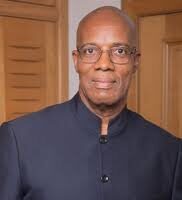By Kizito CUDJOE & Crystabel Danso ABEAM
The country’s push towards renewable energy (RE) integration is facing significant technical and financial challenges, according to Mr. Jabesh Amissah-Arthur – a leading energy expert and Partner at Arthur Energy Advisors.
Mr. Amissah-Arthur highlighted the intermittent nature of renewable energy sources as a primary technical hurdle in injecting large volumes of variable renewables into the national grid. “There are some technical challenges, albeit surmountable; these are primarily around the intermittency effects and operational mitigation required for injecting large amounts of variable renewables into the grid,” he stated.
Intermittency refers to the variability and unpredictability of renewable energy sources like solar and wind, which do not produce a constant supply of power. This poses a significant challenge to the power grid’s stability and reliability. Effective integration requires advanced grid management and storage solutions to balance supply and demand, ensuring a consistent power supply.
However, the expert underscored that the technical issues are just one part of a broader spectrum of challenges. The entire electricity value chain’s financial health, as anchored by Electricity Distribution Companies, plays a critical role in the country’s ability to scale up renewable energy technologies in a financially responsible manner to positively impact consumers.
“It must be recognised that the Ghanaian power system’s financial challenges, which affect our ability to ramp up RE technologies, affect the entire electricity value chain – the distribution system’s (primarily ECG) financial performance, which largely upholds other parts (Generation, Transmission, Fuel Supply, etc.) of the power sector value chain,” Amissah-Arthur added.
The financial struggles of ECG, the country’s main electricity distributor, have long been a bottleneck in the sector. The company has faced issues such as high levels of debt, operational inefficiencies and difficulties in revenue collection. These challenges hinder its ability to invest in infrastructure upgrades and modern grid technologies necessary for renewable energy integration.
Ghana is seeking to enhance its renewable energy in the national energy generation mix from 42.5 megawatts (MW) in 2015 to 1,363.63 MW by 2030, with grid-connected systems totalling 1,094.63 MW. This initiative is part of a broader strategy to reduce greenhouse gas emissions and diversify the country’s energy sources.
Despite the challenges, Mr. Amissah-Arthur remains optimistic about the future of renewable energy in Ghana. “While the challenges are significant, they are not insurmountable. With the right investments in technology prioritising high Return-On-Investment operational improvement activities, Ghana can successfully integrate renewables into its power system and achieve its energy goals.”
To overcome these hurdles, experts suggest a multi-faceted approach. This includes strengthening the financial health of distribution utilities (while recognising that, among them, the ECG holds a significant majority of the PPA obligations) and investing in loss reduction and operational improvement technologies. Additionally, policy and regulatory reforms are necessary to create a conducive environment for private sector investment in renewable energy.
Mr. Amissah-Arthur, who was speaking in an exclusive interview with B&FT ahead of this year’s Ghana Economic Forum (GEF), opined that the current electricity supply is still dominated by Conventional Thermal Power – but noted the addition of more renewables (especially Solar) into the generation mix, with VRA and BPA leading the charge.
“In practice, however, it must be recognised that due to changes in the definition of renewable energy with respect to the treatment of hydropower, Ghana’s 3 large hydro plants are now considered as renewable energy sources; this would bring Ghana’s Renewable Energy Electricity Supplies to over 1,700MMW – which means that over 30% of Ghana’s Power Generation is renewable.”
Touching on the private sector’s role, he asserted that the nature and avenues for private sector contribution to country’s RE scene “is changing due to both country level and global transformations. At country level, Ghana’s capacity levels and offtaker bankability present a situation that, on the surface, would appear more challenging in attracting private sector investment – especially when talking about large-scale RE supply to the national grid.”
However, he added that investments in various climate-friendly investment opportunities are also available; and with global improvements in the cost of various elements typically associated with RE Supply (such as batteries), the prospects for private sector investments in RE are changing significantly.
Additionally, the increasing competitiveness of EVs and related technologies is creating a whole different kind of investment opportunity for private sector participation.
GEF since its establishment in 2011 has played a crucial role in shaping the progress of Ghana’s energy sector by stimulating policies and discussions that seek to secure affordable, reliable and sustainable energy for the country.
GEF has for the past eleven years served as a critical platform where policymakers and other stakeholders gather to address pressing issues and opportunities within the energy sector.
With Ghana’s energy sector facing numerous challenges such as unsteady power supply, dependency on hydropower and the need to vary energy sources, GEF recognises these challenges and has continuously made the country’s energy sector one of its central focuses during annual deliberations.
The Forum has emphasised the importance of energy security, renewable energy adoption and regulatory framework, and also strategies for improving energy efficiency and expanding access to energy.
The GEF has not only influenced policy and investment in the energy sector but over the years through its discussions also raised public awareness about the critical role of energy in the country’s development, and continues to be a catalyst in ensuring that the country’s energy sector progresses to meet the demands of a developing economy while complying with principles of sustainability.










